If you are an expat about to retire, or have already retired, and want to claim your UK state pension, you can claim from any country you reside in the world by getting in touch with the UK International Pension Centre.
Table of contents
- What is the UK State Pension?
- What is the State Pension Age?
- Claiming Your UK State Pension as an Expat
- Expat state pensions when Britain leaves the EU
- State Pension triple lock guarantee explained
- Frozen Expat State Pension payments
- How much State Pension will I get?
- UK State Pension qualifying years explained
- Working out the State Pension starting amount
- Deferring the State Pension
- How To Top Up Your State Pension
- Claiming a State Pension from different countries
- State Pension jargon explained
- Related Information
Make sure you tell them about your move abroad as it is likely that if you spend time out of the UK that the government will lose track of your overseas address.
But claiming the state pension as an expat is still easy if you follow some simple steps.
What is the UK State Pension?
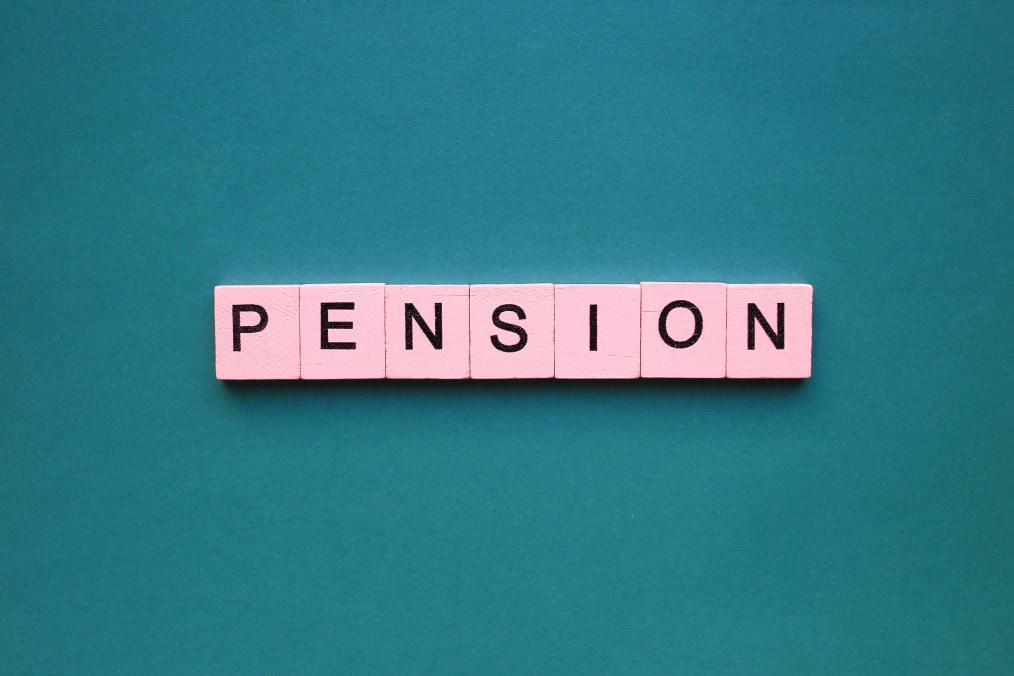
The State Pension is a regular payment from the British government to people who have reached the State Pension Age.
How much State Pension you receive is based on how many qualifying years of National Insurance Contributions you have amassed, including credits for time off without work, looking after a family or caring for a loved one.
The payment depends on your age and gender.
The government pays the old State Pension to expats retiring before April 6, 2016, while those retiring after that date receive the new state pension.
Someone reaching State Pension Age who continues to work or receives other pension income still receives the State Pension.
Don’t forget to find your lost UK pensions while you are living overseas. Billions in lost pensions are waiting for their owners to claim them Don’t be one of the statistics.
What is the State Pension Age?
Your State Pension Age depends on the year when you were born and is the date from which you can claim the State Pension.
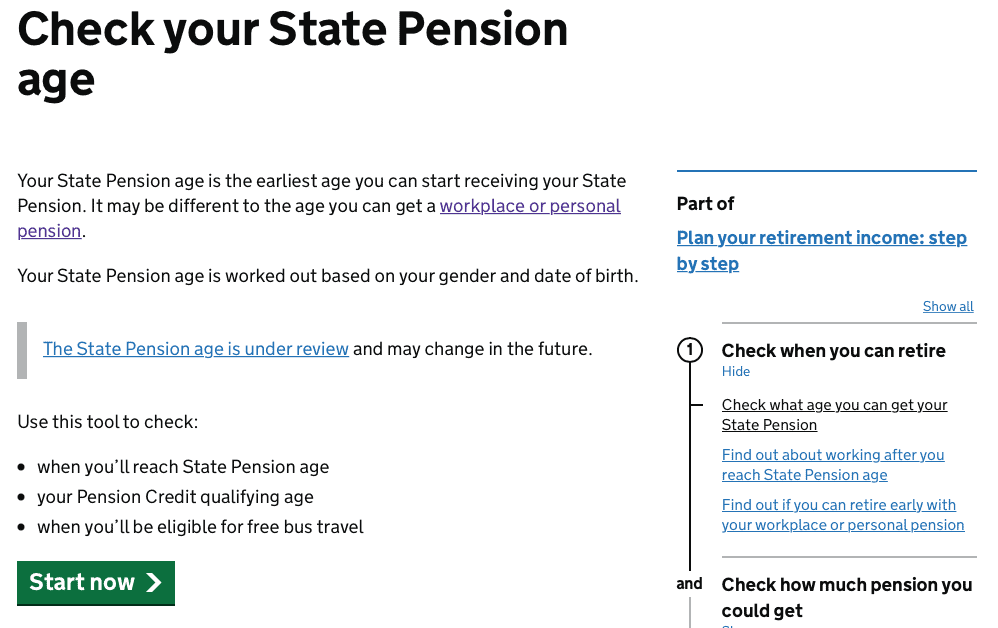
You can find your State Pension Age with an online tool on the British government web site.
All you need to enter is your gender and date of birth.
The government also publishes an online timetable of when men and women reach their State Pension Age.
Claiming Your UK State Pension as an Expat
Expats must claim the State Pension when they are approaching the State Pension Age.
The Department of Work & Pensions (DWP) does not pay the benefit automatically but will send letters inviting people to make a claim.
The letters go to the last known address on file, On moving abroad expats should contact the DWP’s International Pension Centre to update their details so they don’t miss the invitation.
The letter comes out about four months before your State Retirement Age birthday. If you do not get the letter or you are unsure about what is happening to your State Pension.
Expats can also file an international claim form with the International Pension Centre.
Before getting in touch, check you are entitled to claim the State Pension online.
How to contact the International Pension Centre:
By email:
Email: [email protected]
By Telephone:
Telephone: +44 (0) 191 218 7777
Textphone: +44 (0) 191 218 7280
The call centre opens between 9.30am and 3.30pm Monday to Friday.
By Post:
The Pension Service 11
Mail Handling Site A
Wolverhampton
WV98 1LW
United Kingdom
Expat state pensions when Britain leaves the EU

State Pension rules stay the same for expats living in the European Economic Area or Switzerland until December 31, 2020, when the transition period under the Withdrawal Agreement ends.
The transition period is a time out that allows the negotiation of any added arrangements affected by Britain’s departure from the EU.
During this time, the rules on residency, travel and benefits continue to apply.
Each EU country will decide new rules for British expats living there. The British government will publish any changes online before the transition period ends.
Check what to do where you are living
State Pension triple lock guarantee explained
The Tory-Lib Dem coalition introduced the State Pension triple lock guarantee in 2010. The measure increases the State Pension paid every year by the higher of:
- Inflation tracked by the Consumer Price Index (CPI)
- Any rise in the average wage
- A minimum of 2.5%
The aim is to put up pensioner income while keeping the State Pension’s spending power if the cost of living increased.
Ministers review inflation rates and average wage rises for the year in September. The pay rise comes into force the following April.
The triple lock guarantee is time-limited and is due to end in April 2022.
Frozen Expat State Pension payments
Expats living in 53 countries have their State Pension payments uprated each April in line with inflation.
In any country not listed, the State Pension does not increase each year in line with the triple lock guarantee in the UK and stays at the level of the first payment for life.
Moving between EEA or reciprocal agreement countries does not affect the State Pension.
Canada and New Zealand have reciprocal social security agreements, but these do not extend to uprating the state pension each year.
Expats have campaigned to have State Pension payments in every country uprated but lost a legal challenge in the European Courts of Justice.
The UK government argues uprating the state pension for every expat is too expensive – costing around £600 million in extra payments each year.
Detailed House of Commons research has examined the arguments for and against uprating all expat State Pensions and explains how the policy works.
Unfreezing the State Pension
The State Pension is increased to the current rate for any expat returning to the UK from a country where the payment is frozen.
Countries where the UK State Pension is uprated
Below is a list of countries that the UK government pay an increased state pension yearly:
- Austria
- Barbados
- Belgium
- Bermuda
- Bosnia-Herzegovina
- Bulgaria
- Chile
- Croatia
- Cyprus
- Czech Republic
- Denmark
- Estonia
- Finland
- France
- Germany
- Guernsey
- Gibraltar)
- Greece
- Hungary
- Iceland
- Ireland
- Isle of Man
- Israel
- Italy
- Jamaica
- Japan
- Jersey
- Kosovo
- Latvia
- Liechtenstein
- Lithuania
- Luxembourg
- Malta
- Mauritius
- Montenegro
- Netherlands
- North Macedonia
- Norway
- Philippines
- Poland
- Portugal
- Romania
- Serbia
- Slovakia
- Slovenia
- South Korea
- Spain
- Sweden
- Switzerland
- Turkey
- USA
These countries are European Economic Area and Switzerland and countries that have a social security agreement with the UK that allows for cost of living increases. The USA agreement covers American Samoa, Guam, the Northern Mariana Islands, Puerto Rico and the US Virgin Islands
How much State Pension will I get?
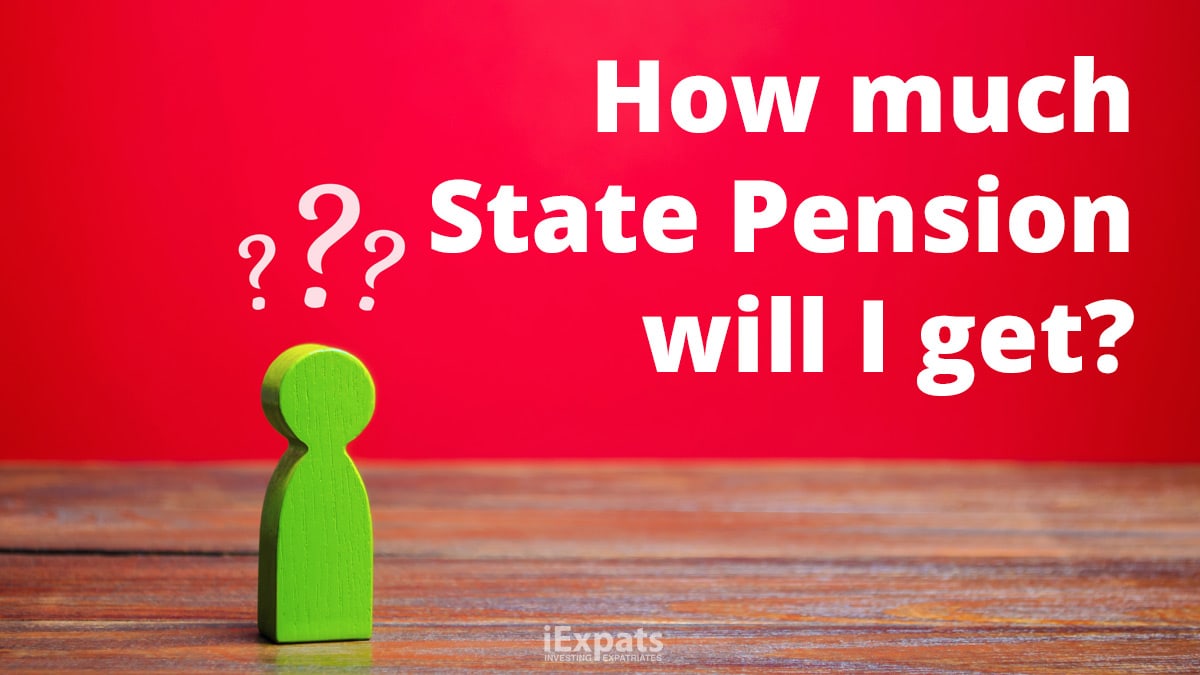
The full new State Pension for 2020-21 is £175.20 a week, but as we have seen above, the actual amount depends on your National Insurance Contribution record.
Couples are each paid according to their individual NIC records.
The payment is only higher if you receive the Additional State Pension.
The Department of Work & Pensions issues State Pension forecasts on request – you can apply online providing you are not already receiving the State Pension or have not deferred the payment.
How much the old State Pension pays
The old state pension is worth £134.25 a week for individuals.
Couples who both have the full number of qualifying years can expect this amount each.
Couples where one partner has no qualifying years will receive £134.25 a week plus a top-up based on their partners National Insurance record.
If you enrolled in the State Earnings Related Pension Scheme (SERPS) this can increase by up to £44.16 a week to £179.41.
SERPS is also known as the Second State Pension or Additional State Pension.
Age restrictions mean no one claiming the new State Pension qualifies for the Additional State Pension unless they inherit a share when a spouse or civil partner who qualifies dies.
To claim the Additional State Pension, contact the Pension Service
What happens to your State Pension when you die?
A surviving partner may inherit a regular extra payment on top of the new State Pension if they do not marry before reaching State Pension Age.
Bereavement Support Payment
A surviving partner may claim a Bereavement Support Payment if:
- The deceased must have paid National Insurance Contributions for at least 25 weeks or died due to a work accident or illness caused by work
- The surviving partner must be below State Pension Age and live in the European Economic Area (EEA), Switzerland, or a country with a reciprocal social security agreement with the UK.
UK State Pension qualifying years explained
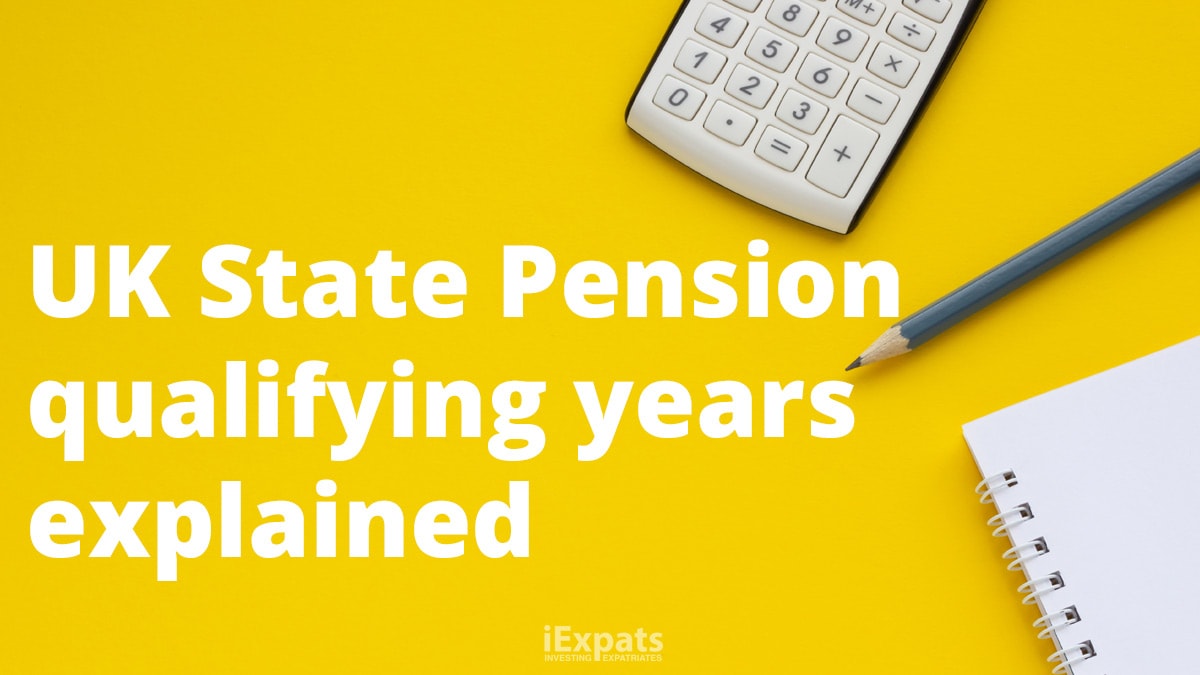
When the new State Pension started in April 2016, the number of qualifying years of National Insurance Contributions (NIC) needed to guarantee a full payment changed too.
Effectively, there are two ways to calculate how much State Pension is paid, depending on the date State Pension Age is reached.
The old rules apply to those reaching State Pension Age up to and including April 5, 2016, while the new rules apply to anyone hitting State Pension Age on or after April 6, 2016.
The conditions for a qualifying year for the old State Pension were set in 1978.
A qualifying year is a tax year in which someone has built up NIC equal to or more than the lower earnings limit. NIC credits cover gaps in qualifying years due to unemployment, time out to bring up a family or caring for loved ones.
Old State Pension qualifying years
Before April 6, 2010, a man needed 44 qualifying years for the full State Pension payment, while a woman needed 39.
Between April 6, 2010 and April 5, 2016, this dropped to 30 qualifying years.
New State Pension qualifying years
From April 6, 2016, men and women have needed 35 qualifying years for the full new State Pension and a minimum of 10 qualifying years for any payment.
Gaps in qualifying years
If you do not know how many qualifying years you have, you can check online at the government web site or call 0300 200 3500.
HM Revenue & Customs may write to you pointing out you have a contribution gap
Working out pro-rata payments
Anyone reaching State Pension Age now with more than 10 but less than 35 qualifying years picks up a pro-rata payment.
The calculation involves some simple arithmetic.
Assuming you reach State Pension Age in May 2020 and have 24 qualifying NIC years, the workings are:
- Full new State Pension weekly payment for 2020-21: £175.20
- Qualifying years: 24
- The pro rata payment formula is: (State pension amount divided by 35) x Number of qualifying years
- So, for the example, divide £175.20 by 35 years, then multiply by 24 years = £120.14
Qualifying years from working overseas
If you have lived and worked outside the UK, any social security contributions you may have made may be considered as qualifying years towards the British state pension.
State Pension payments for expats
To have your state pension paid into a foreign bank account, you will need to give the International Pension Centre your bank identification code (BIC) and international bank account number (IBAN).
You can generally find these on your bank statements or online accounts – but your bank will give them if you ask.
Working out the State Pension starting amount
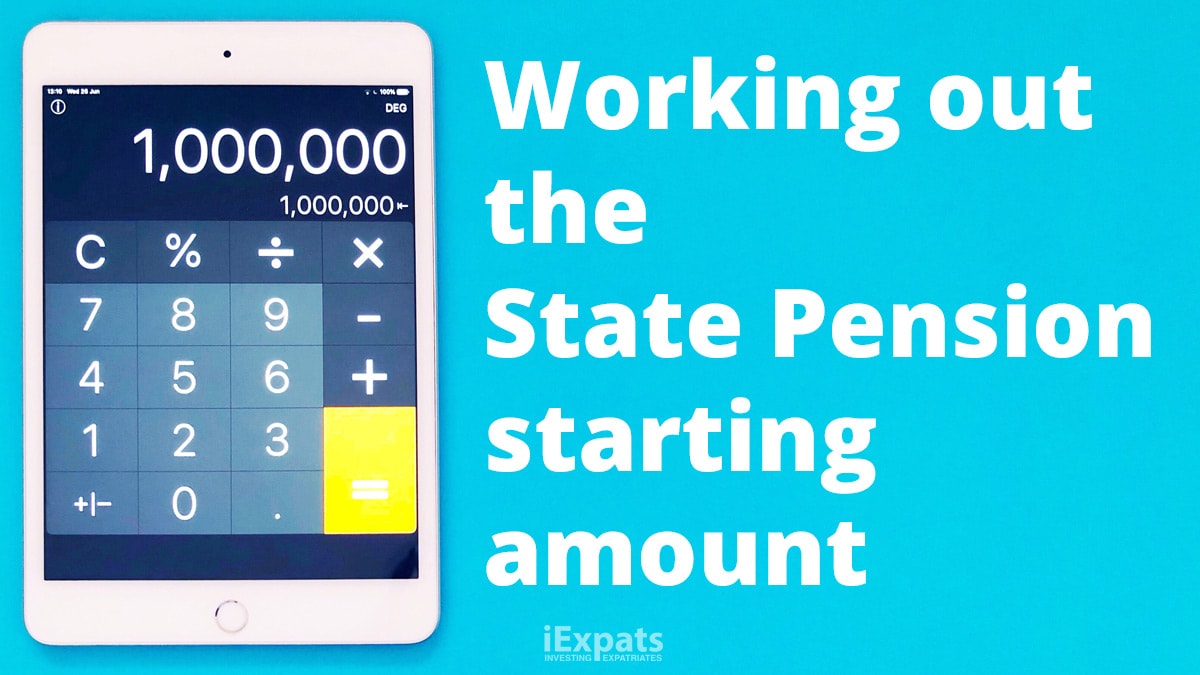
Expats can qualify for extra qualifying years by working after April 6, 2016 until their State Pension Age.
The value of each qualifying year is the current state pension full payment divided by 35 years, then multiplying the amount by the number of extra qualifying years since April 6, 2016.
For example, someone given a starting amount of £140 a week but worked for five years after April 6, 2016.
Each extra year of National Insurance Contributions adds about £5 a week to the new State Pension.
You can add qualifying years until either your State Pension meets the full new State Pension amount (£175.20 a week) or until you reach State Pension Age, whichever falls first.
The new starting amount is £175.20 divided by 35, which is £4.70 a week. Multiply this by five (£23.48) and add this amount to the £140 a week starting amount to give a new starting amount of £163.48.
Extra years worked after 2016-17 will not increase the new State Pension if an expat already has 35 qualifying years by April 5, 2016.
Protected payments
If your starting amount is more than the maximum new State Pension of £175.20 a week, the difference between them is a ‘protected payment’ and added to the new State Pension.
No NIC payments before April 6, 2016
Expats starting NIC payments after April 6, 2016 will have their state pension entitlement worked out under the new State Pension rules.
The calculation is simply the full current state pension divided by 35 multiplied by the number of national insurance qualifying years.
If an expat has 25 qualifying years, the calculations is £175.20/35 x 25 = £125.14.
Adult Dependency Increase
The Adult Dependency Increase (ADI) was scrapped on April 6, 2020. The money was available to pensioners with a financially dependent spouse.
Some pensioners can replace the cash if they claim pension credit or universal credit.
Deferring the State Pension

British expats who want to boost their retirement income can go back to work and pick up extra state pension payments as well.
State pension rules allow anyone to defer on payments – and to receive a generous uplift when they start again.
Unfortunately, few expats know about the loophole and continue to take the cash while working, which can leave them financially worse off.
Only expats in European Economic Area (EEA) countries, Switzerland, and countries with reciprocal social security agreements with Britain can defer the State Pension. Although Canada and New Zealand have reciprocal agreements with Britain, expats there cannot defer their State Pension.
How does deferring the State Pension work?
The British government rewards state pensioners for not drawing their money by paying interest on accounts put on hold.
The interest rate for pensions that started before April 6, 2016, is 10.4% a year. Interest is paid at 5.8% for pensions starting later. The rates are far better than taking the money and leaving the cash in the bank.
The catch is expats can only stop and start their state pension once, so they should take care over triggering the pension payment holiday.
For pensions paid at 10.8%, the holiday is worth £670 for every year the state pension is unpaid, while for those paid at 5.8%, the reward drops to £468.
The Department of Work and Pensions works this out as 1% for every nine weeks the pension is deferred.
The money awarded for deferring the state pension is paid as a one-off bonus or as higher weekly payment if the pension started paying before April 6, 2016.
For newer pensions, the extra is paid with the regular state pension amount.
The payment also carries over to spouses of deceased state pensioners, who automatically inherit their partner’s payments after they die. The money is paid with the regular payment.
How To Top Up Your State Pension
If you have missed some vital years that mean your state pension is less than expected, do not despair because you can buy a top up to fill the gaps for any missed years.
Men born between April 6, 1945 and April 5, 1950 and women born between April 6, 1950 and April 5, 1952 can buy extra qualifying years with voluntary contributions.
The cost is £741 a year for each complete year bought. You may not need to pay for a whole year if you have already paid some contribution or have some credits s during that year.
What if I am on benefits?
Voluntary contributions may not be the best choice. Paying to increase the state pension may see some other income-related benefits reduce. The result would be spending to get more pension only to replace money received from another state source.
Improving the state pension could also mean paying more income tax if your joint pension and other earnings come to more than the personal income tax allowance (£12,500 for 2020-21).
Can expats make voluntary contributions?
Yes. Contact the International Pension Centre to discuss how this might affect your UK state pension.
Expats who are not working can make voluntary contributions if they have lived in the UK for three years in a row or paid three years of National Insurance Contributions.
Working expats are subject to the same three-year rules as non-working expats but must have worked in the UK immediately before leaving.
Expats can pay voluntary contributions if they have reached State Pension Age and have qualifying year gaps that reduce their State Pension.
Claiming a State Pension from different countries
You can receive a state pension from many different countries if you have contributed according to the rules of the system. Indeed, it is something that an increasing number of people are doing nowadays as they tend to move around more often than they did in the past.
State Pension jargon explained
- Additional State Pension – Also called SERPS or the Second State Pension. The payment tops up the old State Pension
- Adult Dependency Increase (ADI) – An extra pension benefit scrapped in April 2020
- Bereavement Support Payment – A lump sum paid when someone dies
- Consumer Price Index (CPI) – The government’s official measure of inflation
- Deferring the State Pension – Putting off drawing the State Pension to gain interest on the money
- Department of Work & Pensions (DWP) – The government department that supervises the State Pension
- European Economic Area – The countries of the European Union plus Norway, Liechtenstein, and Iceland
- International Pension Centre (IPC) – The DWP agency that manages State Pensions for expats
- International State Pension Claim Form – A form that allows expats to claim the State Pension from abroad
- National Insurance Contributions (NIC) – Payments made to fund social security benefits, the National Health Service, and the State Pension
- New State Pension – The State Pension introduced on April 6, 2016
- Old State Pension – The State Pension rules up to April 5, 2016
- Qualifying years – Tax years credited with full National Insurance Contributions towards the State Pension
- Protected payment – Any State Pension amount above the starting amount
- Reciprocal social security agreements – Agreements between the UK and other countries for paying social security benefits to expats
- Second State Pension – SERPS or the Additional State Pension
- Starting amount – The first payment of the new State Pension
- State Earnings Related Pension Scheme (SERPS) – A top-up pension also called the Second State Pension or the Additional State Pension
- State Pension – A guaranteed lifetime payment paid by the government when someone reaches State Pension Age
- State Pension Age – The date someone is entitled to claim the State Pension
- Transition period – A period ending on December31, 2020 that gives the UK and European Union time to negotiate trade, travel and financial aspects of Britain leaving the EU
- Triple lock guarantee – The formula for increasing the State Pension each year until April 2022
- Uprating – The annual State Pension cost of living increase
- Voluntary contributions – A way to buy extra qualifying years to top up the State Pension amount
- Withdrawal Agreement – The agreement between Britain and the EU over the UK leaving Europe
Related Information
Below is a list of related articles you may find of interest.
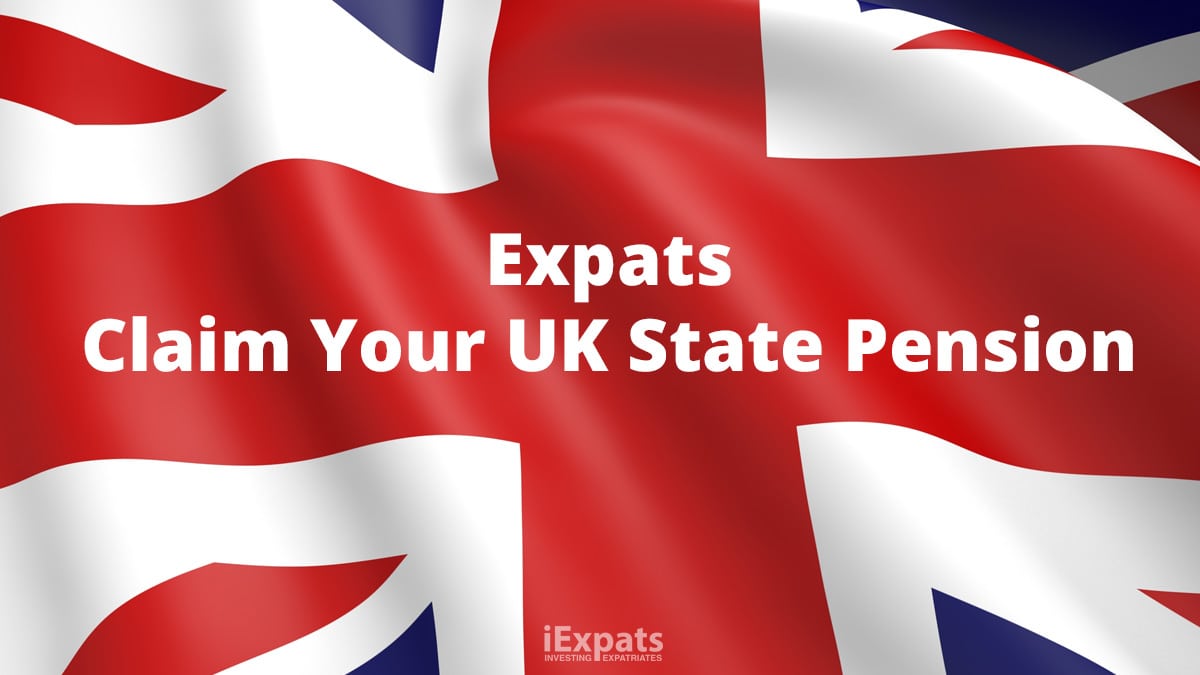
Please correct the misinformation in this article, state pensions in Canada and New Zealand ARE on the frozen list. I should know as I lived in Canada for 12 years, and for part of that time a retiree, after working since age 16 in UK and paying NI. This outrageous scandal affects around 1.1 million UK retirees and is allowed to go on year after year. These seniors have paid for their pensions under the same terms as everyone else and the UK is the only member of the OECD to steal their own seniors pension money. It’s about time this blatant discrimination and injustice was ended.
This has now been corrected, this was an accidental inclusion in the list, but did mention it in the body of the article, thank you for pointing that mistake in the list.
Like to get my English pension please can you sent me the forms I need to get my English pension please as i.live in Ireland now been here about 14 years
I was born before April 1953. I am living in Cambodia. Will I receive my annual deferrment increases ass I have not claimed my pension yet. I am 67 years old. I paid contributions from abroad for many years and lived and paid contributions in the UK for more than 10 years.
Thank you for your message. I would recommend that you head on over to this link and fill out the form to get some advice from our experts. Thank you https://www.iexpats.com/get-advice/
Please explain in what currency I will receive my pension if I do not live in the UK and I am entitled to a pension. I have a pound account in a bank in the country where the earnings in pounds were paid
Thank you for your message. I would recommend that you head on over to this link and fill out the form to get some advice from our experts. Thank you https://www.iexpats.com/get-advice/
I have lived in South Africa for 49 years and did try and get my UK Pension only to be told I had only paid 6 years stamps and will not get a UK pension I think this is really unfair, I thought I would be able to get a basic pension. I am now 72 years old.
Due to my business and marriage, I have been living in Iran for the past 18 years. Since 2018 I have made every effort to sort out my Pension Affairs with the International Pension Section, in order to receive my pension from its due date (6 May 2020).
All my efforts seem to have hit a brick wall, since, NOT ONLY, my NIC records have not been compiled, and I have not received a penny as a pension, BUT, the International Pension Section of the DWP is informing me that “SO LONG AS I STAY IN IRAN, I WILL NOT RECEIVE ANY PENSION, AND I HAVE TO DECIDE BETWEEN LIVING IN IRAN AND NOT GETTING ANY PENSION OR IMMIGRATING TO ANOTHER COUNTRY”. Isn’t this kind of policy enforcement against the basic rights of people to FREELY choose their place of residence?
I could not believe my ears when I heard this nonsense. How British government can puts its own subjects under sanction and force them to relocate, specially, due to Corona, constantly we are told to stay put.
How can I force my wife and children against their will, and while I am suffering from a chronic heart problem due to my old age?
I hope that you would be kind enough to offer helpful contribution to resolve this matter.
Best Regards
Ali Falsafi
British pensions in Canada are frozen i.e. do not get an annual cost-of-living increase.
This factual error makes it difficult for anyone to take your website seriously. It would be smart to correct it, in my opinion!
Cheers,
Alison Bate, Vancouver, Canada
This has now been corrected, this was an accidental inclusion in the list, but did mention it in the body of the article, thank you for pointing that mistake in the list.
I worked approx 5-6 years in the UK, till I was 21 year of age, then I left to live in Spain where I reside now. I am now 57 years old, will i be entitled to any UK pension when I’m 67 or would it be beneficial for me to pay into the system now voluntarily over the next 10 years to receive something?
I live in Japan. I am a UK guy who has paid in full 35 yrs NI contributions. I will reach retirement age soon. I heard from an expat that here our penions are frozen from the time we claim and we do not get our UK pensions updated. Since this guiy has never had his pension updated, I wonder why Japan is included in your list of reciprocal arrangements.
HI Lisa Iam trying to claim my pension from UK , Iam a contractor from UK i have 41 years paying NIC in UK . Came to AFRICA working for ALSTOM UK in 2012 finished in 2018 .Been living here ever since,
Now will be 66 in NOVEMBER and wish to return to UK to retire BUT CANNOT GET FLIGHTS DUE TO CORONA,,
How can I claim UK pension into my English account .. Can you advise
regards Ken
I live in South Africa and I am about to claim my UK State Pension. I was going to get it paid into my normal South Africa bank account but have been told that you lose a lot of money on the South African bank’s very unfavourable exchange rate (a lot less than the going rate) and that it would be better to use a specialist foreign exchange provider as a go between to get a much better rate. This worries me though. Does anyone else use this method or do most people just get it paid into normal bank account in the country where they live? Do people receiving it into their normal local bank account notice a big difference from the UK Pounds amount being sent to what it should be, once converted. i.e. a lot less?
Hi Linda, I found your commentary of great interest.
Firstly because we did change from receiving our UK Pensions in sterling – as we felt the RSA/UK exchange rates were not that good. So we changed to receiving in Rands, letting the Pension office organise the exchange rate via Citibank. However, of late we have found yet again those exchange rates are NEVER in our favour. Banks always ‘predict’ the rate is going down, and we suffer accordingly……. we now changed back to receiving direct in sterling!!!!! A bit of a Merry-go-round….
Can you please clarify for me whether or not you can make contributions after retirement age to bring yourself up to the ten year minimum. I am 67 and have been residing in the USA for the past 39 years.,
I have just heard from my stepdad that he has not received his pension yet!! Eligible from July, lives in Spain. He has not heard anything from pensions about why, and when called they replied ‘your in the system’ and there is a 6 MONTH delay!!!!
I cannot believe that he is having to wait for what he is rightly entitled too! Vulnerable groups of people are being fobbed off!!
I am so upset by this, is anyone else having the same issue?
Yes!! I applied in January 2020 for my pension as I’m now retired in Spain. and have not heard anything! I only got my certificates returned back in feb? like your father i’m in the dark.
So very cross. Please do let me know if your father gets any response.
Thank you.
Same here !
I claimed in November 2020, received my documents back in January & have heard nothing more !! After they failed to pay me I wrote to them on their online form which stated I would receive a reply in 10 working days or they would let me know why not, more than a Month has gone by & no response at all, most importantly they have failed to pay my pension, it’s scandalous !!
I turned 66 yrs old in July 2021. To date 3 pension payments have been remitted to my bank in Kolkata, India, accord to the DWP. In order to trace the payments my bank is asking for the swift code of the sending bank but DWP say they cannot give this information out. Does anyone know the swift code, or reason, as to why it’s being witheld?
Very interesting. I have been receiving until recently the UK state pension in Canada and wonder if I am due to have some of the same problems as some of the people here! Especially the last person here! Otherwise I am one of your success stories, in that I am reasonably content with my state pension at the moment, but trying to decide whether to remain in the UK and have my pension paid here and transfer it to one of the other providers as needs be in future, or leave it in Canada where I can then go back.
I’ve been searching for information about UK State Pensions paid to UK expat’s. Two main concerns I have are the flowing: I am the survivor of an expat receiving the state pension. However, I did not get any lump sum upon my spouse’s death in 2017, nor have received cost of living benefits.
Another concern….State Pension officials have never sent me tax slips. So, do I claim this state pension to Canada taxation department without tax slips?
My $117. per month seems outrageous!
Looking at the application process and having problems gaps in my travel history. Anyone else have this problem and overcome it?
can i get my state pension which i already receive apostille
my husband moved to the US 20 years. we are trying to figure out how to apply for his state pension from the UK CAN ANYONE HELLP
Hi.
I turn 66 on March 18th 2024. I live in Mexico. Expats in Mexico have their pensions frozen. The pension is due to rise by over 10% and I believe this is on the 1st April 2024. Would it be best for me to wait before applying for the pension or ask that I should start receiving it from 1st April?
Thank you,
Mark